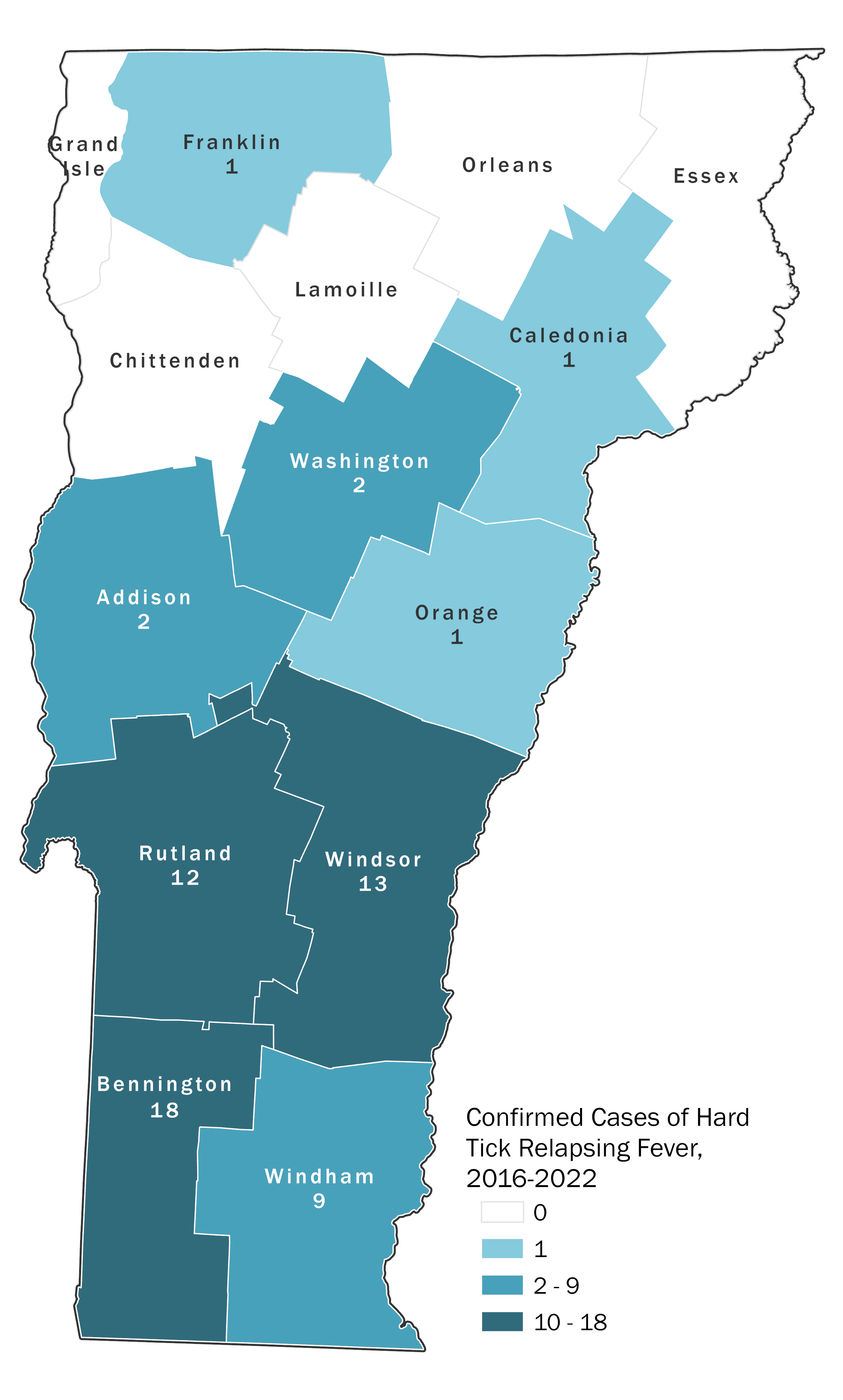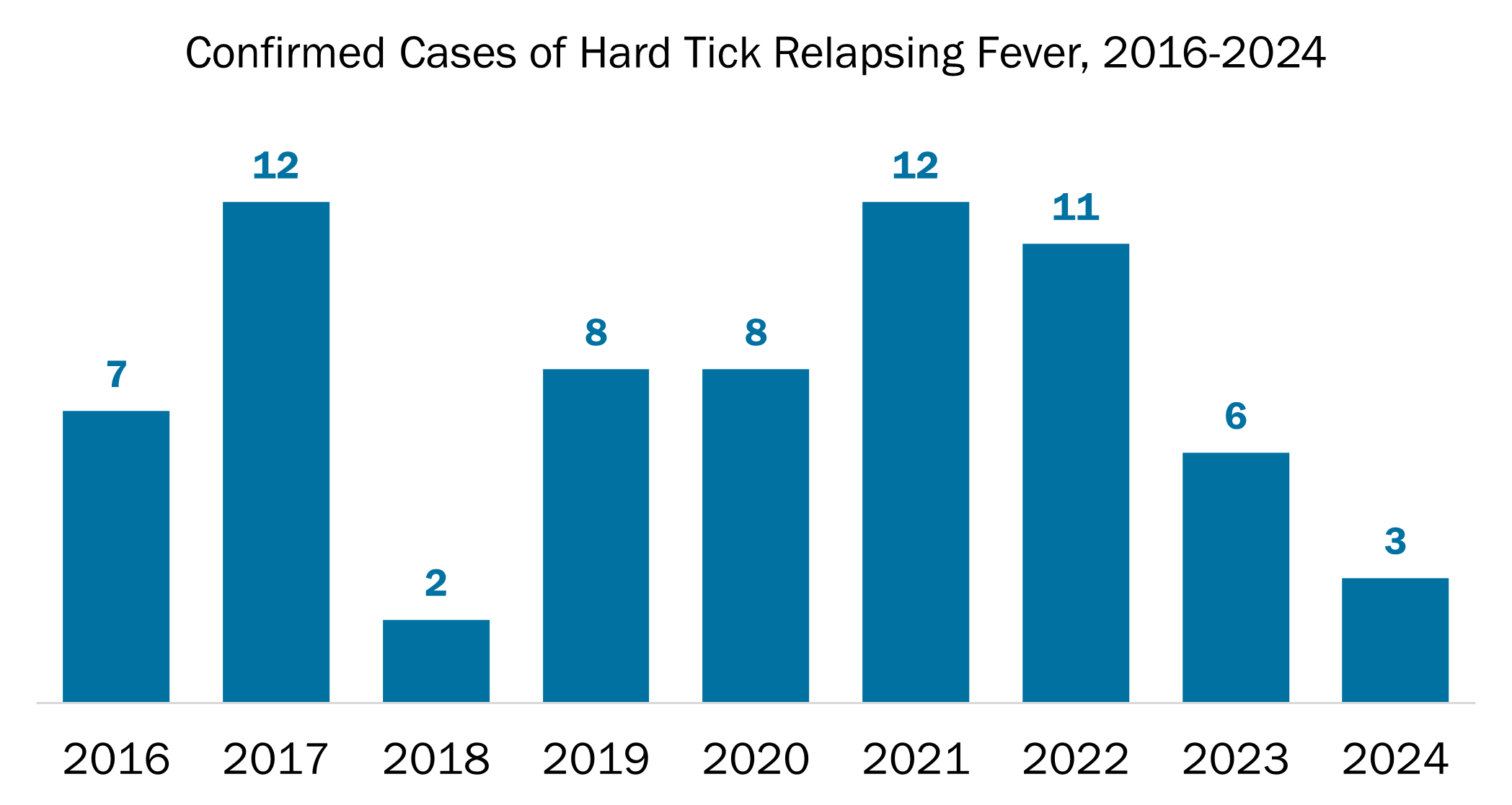Hard tick relapsing fever (formerly known as Borrelia miyamotoi disease) is caused by the bacterium, Borrelia miyamotoi, which was first discovered in Japan in 1995. In the United States, the first human infections were reported in 2013. The first case in a Vermont resident was reported to the Health Department in 2016.
Symptoms
Symptoms of hard tick relapsing fever may include a fever, chills, muscle aches, fatigue, joint pain and headaches. Some people also report that their fever comes and goes (relapsing fever). People with hard tick relapsing fever do not often have a rash, unlike patients with Lyme disease.
Diagnosis
Hard tick relapsing fever can be diagnosed with the help of a blood test. Laboratory tests for infection are not as widely available as tests for other tick bite illnesses, but they are offered by some commercial laboratories.
Tests used to diagnose an infection with Borrelia burgdorferi, the bacteria that causes Lyme disease, cannot be used to diagnose hard tick relapsing fever.
Treatment
Hard tick relapsing fever is treated with a 2 to 4 week course of doxycycline. Other antibiotics have also been used to treat this illness.
How it Spreads
In Vermont and other parts of the northeastern United States, hard tick relapsing fever is spread to humans by the bite of infected blacklegged ticks. This is the same tick that spreads Lyme disease, anaplasmosis, babesiosis, and Powassan virus.
Prevention
The best way to prevent hard tick relapsing fever is to prevent tick bites.
Surveillance
The Health Department began surveillance for hard tick relapsing fever in 2016 when the first infection in a Vermont resident was reported. Like other tick bite illnesses, each reported hard tick relapsing fever infection is investigated by the Department. To date, fewer than 75 infections in Vermont residents have been reported.
The Vermont Department of Health is also working with other state health departments and federal partners to collect and share information on hard tick relapsing fever. These joint efforts are designed to help assess the public health impact of this disease and identify potential surveillance methods.
Hard tick relapsing fever is most commonly reported in the southern half of Vermont.


Health Care Providers
Because it is an emerging disease, hard tick relapsing fever is reportable in Vermont. Health care providers are required to report cases to the Health Department. Laboratories are also required to report positive results for hard tick relapsing fever, including those from polymerase chain reaction (PCR) and antibody-based tests.
